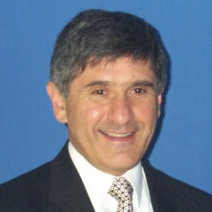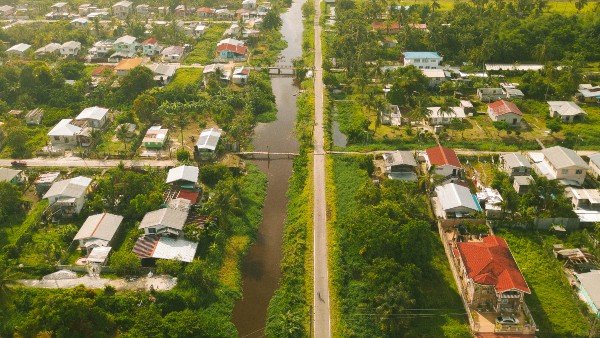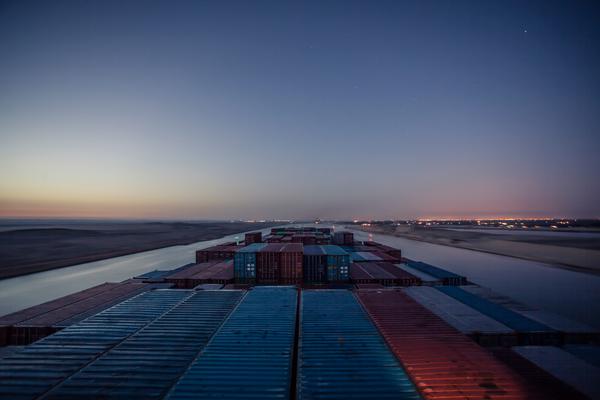The 2015 United Nations Climate Change Conference in Paris negotiated a global agreement on the reduction of climate change, which will become legally binding by April 2017 if joined by at least 55 countries, which together represent at least 55 % of global greenhouse emissions. Dennis Sherwood FRSA argues that, while welcome, the primary focus should have been on extraction of greenhouse gases, not their reduction.
The global commitment to reduce carbon emissions, as agreed at the recent Paris Conference on Climate Change, is, without doubt, a ‘good thing’. But it is not the right thing: the right thing to do to solve the climate change problem is to develop technologies that extract greenhouse gases directly from the atmosphere. Since this is likely to be controversial, my purpose here is to present what I trust will be a convincing (albeit brief) argument. A fuller discussion, which addresses many of the complexities necessarily glossed over here, is available here and here.
Let me explain by analogy. Imagine you are the Captain of a large ship. You are on the bridge, and your First Officer informs you that the ship has sprung a leak, and is taking in water. The situation is not yet a crisis, and so there is no need to abandon ship yet. But unless action is taken, the ship will eventually sink. What order, or orders, do you give? My hunch is that most people will respond by giving two orders: “staunch the flow” and “man the pumps”. Both are wise, and each has a different effect: the first prevents more water from coming into the ship; the second removes the water already within the ship.
Suppose, however, that – for whatever reason – you can give only one order. You have to choose between staunching the flow, and manning the pumps. Which order will you give? And why? If I were the Captain, subject to a very important condition, which I would endeavour to ensure is fulfilled, I would have no hesitation in saying “man the pumps!” Why so?
Because as long as the water can be pumped out of the ship faster than it is coming in (that’s the condition), then the ship will continue to stay afloat indefinitely. But if I only staunch the flow – even if the inflow can be reduced to zero – there is the possibility that the quantity of water already in the hold will slowly cause the ship to sink. And if the inflow of water cannot be staunched entirely, but only reduced from a flood to, say, a trickle, then, sooner or later, the ship will surely sink.
So much for the analogy. The reality is that spaceship earth is over-heating, not sinking, but for much the same reason. Just as the greater the quantity of water in the hold of a ship, the greater the likelihood that the ship will sink, then the greater the quantity of greenhouse gases in the atmosphere, the greater the stress on the planet attributable to too high a temperature. And the flow of greenhouse gases into the atmosphere resulting from human activity is just like the flow of water into the hold of the ship. So, by analogy, we need to ‘pump’ the greenhouse gases out, just as we need to pump water out of the hold of a ship. Curbing emissions is like staunching the inflow of water into the ship; it is undoubtedly a good thing to do, for it stops the problem from becoming worse. But it does not solve the fundamental problem. The only way to do that is to pump the water out. Hence my proposition that reducing emissions, though a good thing to do, is not the right thing to do: the right thing to do is to develop ‘pump’ technologies to extract greenhouse gases directly from the atmosphere, and put them somewhere safe.
The concept of an ‘atmospheric pump’ is not new: on the contrary, a natural pump has been keeping the planet’s temperature stable for millions of years. In Gaia – The Practical Science of Planetary Medicine, James Lovelock describes what he calls the living pump; a process in which marine algae, known as coccolithophores, use carbon dioxide, originally in the atmosphere, to form their shells. When the organisms die, their shells fall to the bottom of the ocean, where, over long periods of time, they become the rocks we know as limestone and chalk. The ‘living pump’ therefore extracts carbon dioxide directly from the atmosphere, ‘burying’ it as rock.
Until very recently, this process has kept the level of carbon dioxide in the atmosphere ‘just right’, controlling the earth’s temperature at about 14 °C. But over the last 50 years, the rate at which man has pushed carbon dioxide into the atmosphere from emissions has been greater than the rate at which the living pump has been able to extract it. The excess of the inflow, from emissions, over the outflow, through the living pump, has therefore caused a progressive accumulation of carbon dioxide in the atmosphere, and so the global temperature is rising. Slowing down the emissions therefore does not solve the problem: supplementing the living pump does.
The technology to do this is some form of machine that can ‘suck in’ air, and then physically separate the greenhouse gases from the other atmospheric components. Green plants, of which coccolithophores are one example, do this naturally; we need to invent technologies to do this artificially, at scale. That this technology does not currently exist is not a barrier to its discovery: once-upon-a-time, steam engines, electricity generators and smart phones didn’t exist either.
The issue is urgency. We need to develop the technologies now. So wouldn’t it have been good if the Paris Conference had set up an international project to do just that, perhaps working alongside the ‘Global Apollo Programme’ recently announced by Sir David Attenborough?
Dennis Sherwood is Managing Director of The Silver Bullet Machine Manufacturing Company Limited.
Related articles
-
Lessons from the land of many waters
Alexander Alder-Westlake
In a time of rising sea levels and flooding threats, Alexander Alder-Westlake suggests we draw lessons from a country most of us know nothing about. With its unique geography, topography and history, Guyana has much to teach the rest of the planet.
-
All we are saying is give degrowth a chance
Chris Oestereich Sam Bliss
A decade ago, a container shipping worker had an epiphany, and it caused him to question the very basis of his business. Sam Bliss and Chris Oestereich take up the story.
-
We need nature recovery now… not in 20 years time
Lee Heykoop
A number of new laws will have huge benefits in regreening our towns, increasing biodiversity and helping nature recover from the damage done by humankind. But, argues, Lee Heykoop, we need to make it all happen much more quickly




Be the first to write a comment
Comments
Please login to post a comment or reply
Don't have an account? Click here to register.